Albedometer SRA30-M2-D1 is a digital spectrally flat Class A sensor that measures global and reflected solar radiation as well as solar albedo, or solar reflectance. The SRA30-M2-D1 is the most precise albedometer on the market and is heated for maximum data availability. It comprises one AMF03 albedometer mounting kit and two spectrally flat Class A (formerly “secondary standard”) pyranometers SR30-M2-D1.
The pyranometers meet the Class A requirements for PV monitoring systems outlined in the IEC 61724-1:2017 standard. It features two thermopile sensors - one measuring global solar radiation, and the other measuring reflected solar radiation. The AMF03 package includes a glare screen, a mounting fixture with a rod, necessary mounting hardware, and tools. Its modular design simplifies maintenance and calibration processes.
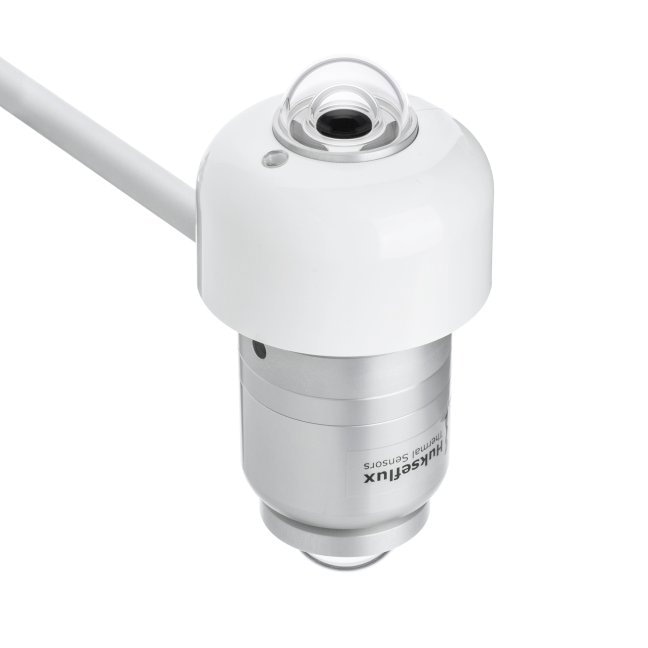
Image Credit: Hukseflux Thermal Sensors B.V.
Specifications
Source: Hukseflux Thermal Sensors B.V.
| . |
. |
| Measurand |
global solar radiation and reflected solar radiation |
| Optional measurand |
albedo or solar reflectance, net solar radiation |
| SRA30-M2-D1 specifications |
: |
| Included |
2 x SR30-M2-D1, 1 x AMF03 |
| IEC 61724-1 compliance |
meets Class A PV monitoring system requirements |
| Calibration uncertainty |
< 1.2 % (k = 2) |
| Heating |
included |
| Ventilation |
included |
| Mounting |
mounting rod with 15 x 10⁻³ m diameter |
| Rated operating temperature |
-40 to +80 °C range |
| SR30-M2-D1 |
: |
| Included sensors |
2 x identical ISO 9060 spectrally flat Class A pyranometer SR30-M2-D1 |
| Output |
digital Modbus RTU over RS-485 |
| Temperature response |
< ± 0.4 % (-30 to +50 °C) |
| Temperature response test and directional response test |
reports included |
| Power consumption |
< 3 W at 12 VDC |
| Standard cable length |
5 m (see options) |
| Digital output |
: |
| Output |
irradiance in W/m²; instrument body temperature in °C; tilt angle in °; internal humidity in %; ventilator speed in RPM |
| Communication protocol |
Modbus |
| Transmission mode |
RTU |
| Hardware interface |
2-wire (half duplex) RS-485 |
| Rated operating voltage range |
8 to 30 VDC |
| AMF03 |
: |
| Included parts |
1 x glare screen; 1 x AMF03 fixture with rod; 1 x conical positioner; 2 x M5x12 socket head cap screw; 1 x M6x8 socket head cap screw, 2 x M8x12 set screw, 1 x mounting and fixation instruction sheet |
Options
- Longer cables, in multiples of 5 m
Description
Albedometer SRA30-M2-D1 Design
Two identical SR30-M2-D1 pyranometers, one looking up and the other down, make up the SRA30-M2-D1. The two sensors and one AMF03 (see image below) albedometer mounting kit are combined to form an SRA30-M2-D1.
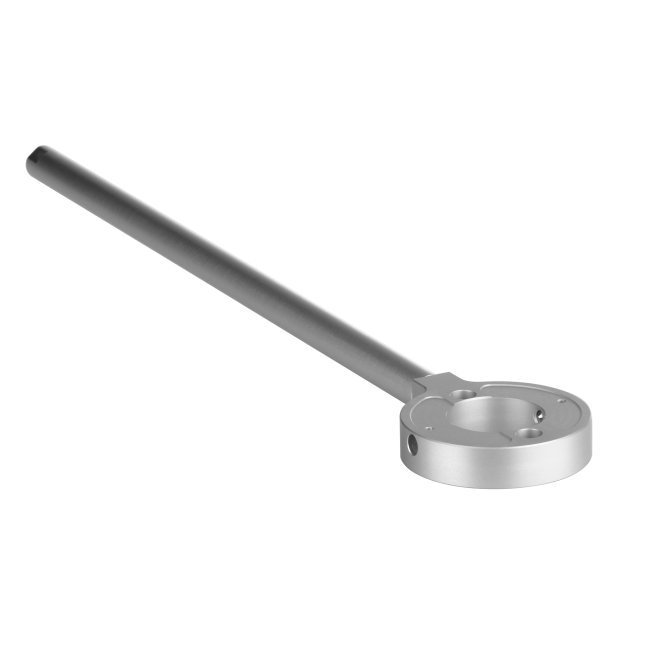
Image Credit: Hukseflux Thermal Sensors B.V.
AMF03 comprises a glare screen, a fixture with a mounting rod, and all the necessary components for assembling the SRA30 albedometer. It includes mounting hardware, tools, and detailed instructions for mounting and fixation. The modular design of the SRA30 simplifies both maintenance and calibration processes.
The Best Albedometer for the PV Industry
SRA30-M2-D1 is the most accurate albedometer available, and its benefits include the following:
- Best-in-class temperature response < ± 0.4 % (-30 to +50 °C), best “zero offset a” and best calibration uncertainty
- Digital outputs: easy implementation and servicing
- Heating and ventilation included, complying with IEC 61724-1 Class A PV system requirements
- Modular: it can be calibrated as separate pyranometers
- Re-calibration registers are fully accessible to users
- Test certificates for temperature- and directional response are included as required by ISO 9060
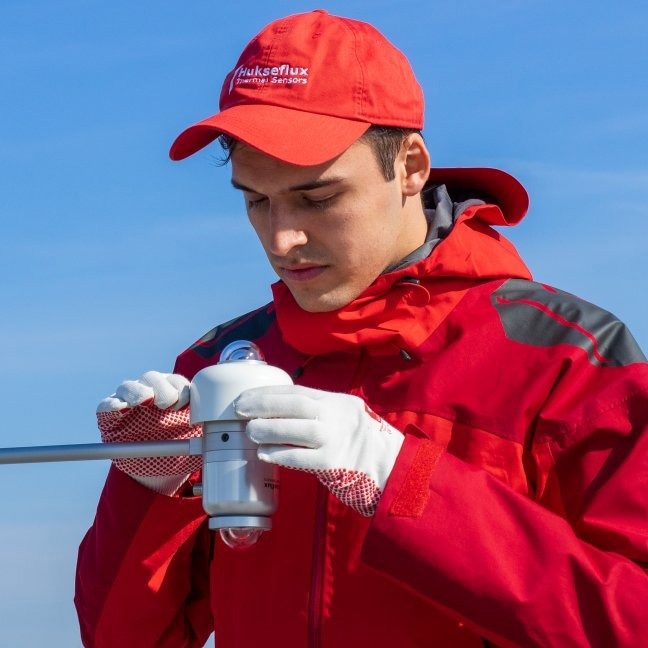
Image Credit: Hukseflux Thermal Sensors B.V.
An Albedometer That Is Easy to Use
This albedometer consists of two SR30 spectrally flat Class A pyranometers: one facing upward to measure global solar radiation and another facing downward to measure reflected solar radiation. When utilizing SR30, the irradiance data in W/m² is transmitted via the Modbus protocol over 2-wire RS-485.
Detailed information about the working principle and specifications of the pyranometers can be found in the SR30 user manual. The SRA30 can also be easily directly integrated into commonly used datalogging systems.
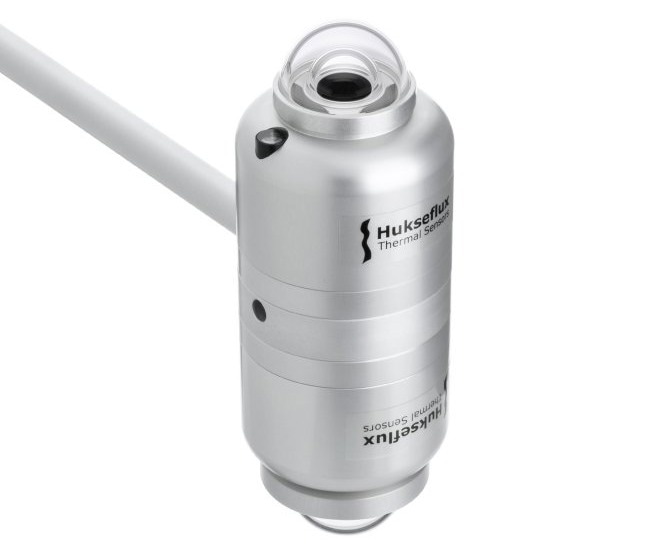
Image Credit: Hukseflux Thermal Sensors B.V.
Albedometers find application in various fields, such as general meteorological observations, building physics, roof reflectance studies, climate research, and solar collector testing. They are frequently employed for outdoor solar radiation balance measurements within meteorological stations.
Albedometers are also gaining traction in bifacial PV module performance monitoring, a use case that demands horizontal leveling; in this scenario, the package includes a bubble level and a mounting rod.
Moreover, each SR30-M2-D1 pyranometer is equipped with a tilt sensor, enhancing its versatility in diverse applications.
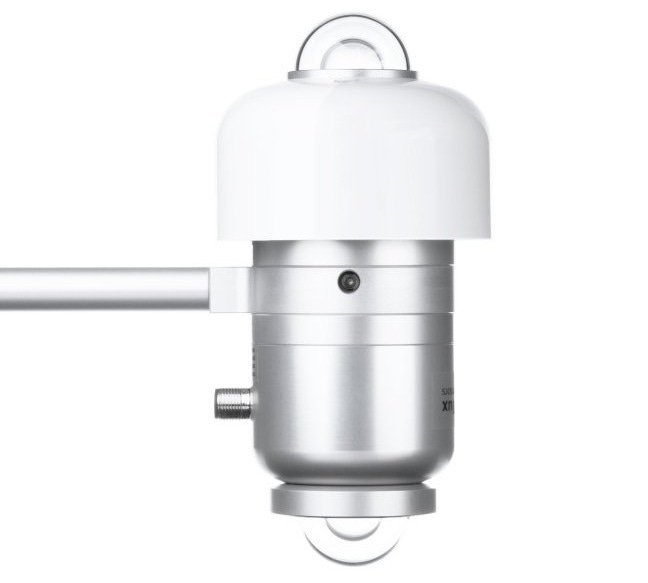
Image Credit: Hukseflux Thermal Sensors B.V.
Heated for High Data Availability, Featuring RVH™ Technology
By heating the outer dome of the pyranometers and leveraging airflow between the inner and outer domes, high data availability is achieved. Recirculating Ventilation and Heating, or RVH™, is a technology created by Hukseflux that prevents the buildup of dew and frost and is just as effective as conventional ventilation systems while taking up a fraction of the space.
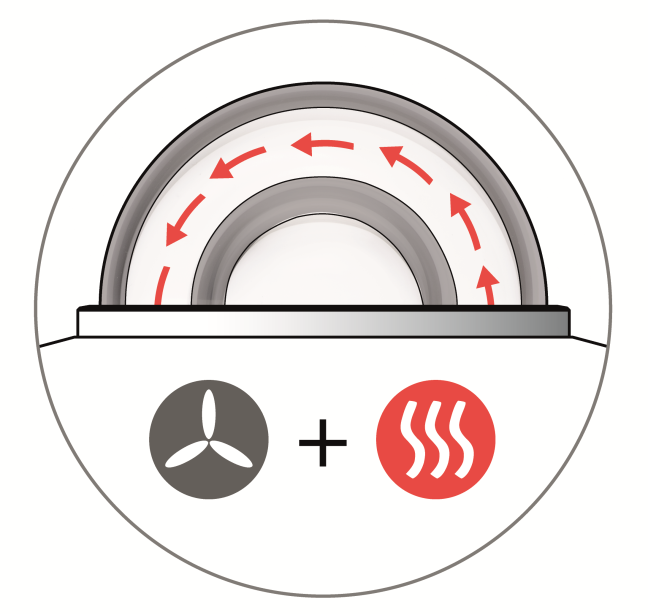
Image Credit: Hukseflux Thermal Sensors B.V.
Suggested Use
- PV monitoring with bifacial solar modules
- High-accuracy meteorological observations
- Extreme climates (tropical/polar)